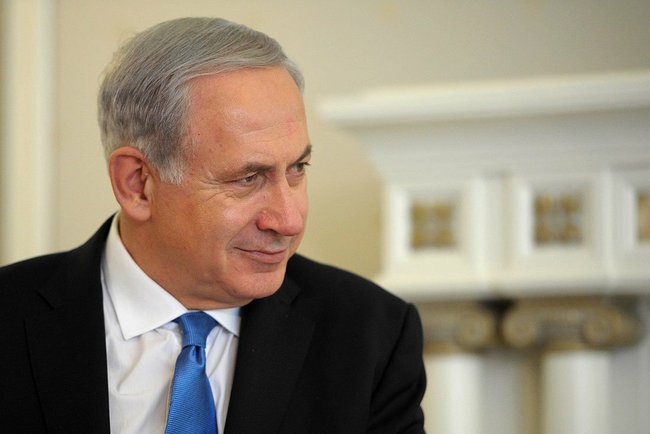Sometimes it is best to get the cards on the table and know where the other party stands, racist warts and all, argues Gideon Levy.
On a cross-Canada speaking tour, courtesy of Canadians for Justice and Peace in the Middle East, the Israeli columnist for Ha’aretz told one Hamilton audience that Israeli Prime Minister Benjamin Netanyahu displayed his true colours in the run-up to the March 17 Israeli election.
Netanyahu both publicly rejected a Palestinian state and thus a two-state solution, and warned Israeli voters that minority Arab citizens in the Jewish state were streaming to the polls “in droves.”
The Israeli PM was reacting to the growing popularity of the Joint List, a marriage of Arab-only parties and the Jewish Arab Hadash or Communist party. The Joint List became the third largest political group elected to the Knesset.
This appeal to the nascent fears of many majority Israeli Jews helped the veteran Israel PM and his Likud party steal away seats from harder right parties like the pro-settler Jewish Home in the surprising sweep to victory for a fourth term as head of another right-wing coalition.
Since then Netanyahu has backtracked in face of opprobrium from traditional allies in Washington and the EU regarding his complete rejection of a Palestinian state and demonstrated some post-election contriteness to Israeli Arab voters.
But the cat is out of the bag, argues Levy.
Levy argues that Netanyahu tore off “the masquerade,” displayed by successive Israeli prime ministers, Labour and Likud, since the seizure of Arab lands 48 years ago in the 1967 war against its neighbouring countries that there was a serious intention by the victors to ultimately withdraw from Palestinian land.
The occupation of the West Bank, Gaza (albeit Hamas-run, it is effectively controlled externally by Israel) and the Golan were all supposed to be temporary. But it appears to getting more permanent if one reads the March 17 results.
Twenty per cent of Israelis in the country’s pre-1967 war borders who are Palestinian Arabs face serious discrimination but have equal rights with the majority Jewish population in terms of being allowed to vote and have civil rights.
However, the 2.5 million Palestinians living in the occupied West Bank are deprived of any access to democratic rule.
Netanyahu performed a public service in his rhetorical candour in the election, Levy observes.
“If Mr. Netanyahu is right and there is no two-state solution, I think we should insist upon asking him what is next?” he continues.
Levy doubts any circumstance where any Israeli leader will dare to negotiate an evacuation of some or all of the 600,000 Jewish settlers in the occupied West Bank to reach a peace deal with the Palestinians.
So, the future is a one-state of Israel-Palestine where Israel Jews who represent half the population but enjoy more rights and resources than Palestinians in the same country.
Israel has to be “challenged,” says Levy, to grant all Arabs inside Israel or the territories the same access to Israel democracy.
“This is basic, basic international behaviour. You are a democracy. You are part of the west. You are part of the civilized world. It cannot be there is one country where there are two kinds of citizens, two kinds of human beings.”
But change can only from pressure from its major allies, particularly the United States.
And Levy worries that a last minute spurt of anger by Barrack Obama in the sixth year of his presidential term against the Israel PM’s pre-election statements may be a little late to produce actions of significant consequence.
He says most Israelis are completely oblivious of the impact on the “brutal” and “humiliating” occupation imposed the Palestinian people.
He points to the Israeli military’s night time raids on families and subsequent arrests on Palestinians in the West Bank, as well as the “needless” deaths of hundreds of children and women in Gaza by the Israeli military in the latest incursion last summer.
Israel claims its direct rule of the West Bank and its indirect control of Gaza represents a strategy of ensuring “security.”
Following Netanyahu’s pre-election statements, it will more difficult for the Israelis to make the argument that security trumps democratic and civil rights in the West Bank, says Levy.
In fact, he argues that Israel would actually experience more security if all of the Palestinians were treated in a just manner.
Levy notes there have been no serious terror attacks by armed Palestinians in the West Bank courtesy of the Palestinian Authority in Ramallah in the past ten years.
But the continued marginalization could result in the Islamic State or ISIS (the extreme group in parts of Iraq and Syria) gaining a foothold in the West Bank down the road, he predicts.
“[As] despair [gets] stronger the more people have nothing to lose. The question is can we wait? What will be done if this happens? What will be done?”
Levy recalls that before the late 1980s he was a typical Israeli (at one point for four years he advised Israeli politician Shimon Peres) in caring little about what was happening just an hour or so away in the “backyard,” of the occupied Palestinian territories.
“Israelis are not monsters,” he told his audience. But they are taught to see themselves as “victims,” forced to do bad things against their enemies to “survive,” even if the actions violate international laws.
“Scratch under the skin of most Israelis and you will realize that one way or the other the Palestinians are not perceived as equal human beings. This is very effective to maintain the occupation.”
Paul Weinberg is a Hamilton based freelance writer who can be reached at [email protected].
Photo: wikimedia commons



